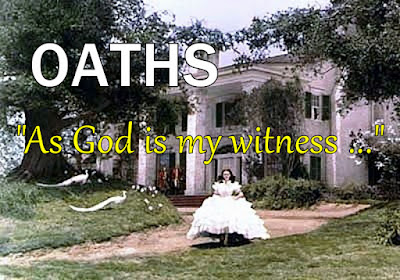BALANCING ACT
James 2:14-26
"... We entreat you on behalf of Christ, be reconciled to God."
2 Corinthians 5:20b
We can be reconciled with an estranged loved one or friend. We can can reconcile our differences. We can even reconcile our bank accounts, but what is involved in living in reconciliation with God?
Remember a time when we manually reconciled our bank accounts? Maybe some of you still do. We called it "balancing" our checkbooks. Every month when our bank statements came in the mail, we would go through our checkbooks making sure the money we deposited minus what we spent was the same amount on the statement.
Living in reconciliation with God requires the balancing of the "and/both" nature of the community God created for us to live in. In the beginning, the community of the Trinity of God, Father, Son and Holy Spirit, out of the same unconditional, self-giving, self sacrificing love that led Jesus to the cross, created us to love and be loved in health relationship with God, other people and the created order.
Living in reconciliation with God is both/and living in reconciliation with God and other human beings. That's what the Ten Commandments are about. They're a "how-to" guide to how to live in loving and healthy relationship with God
It's not a DIY (do it yourself) project. When we do that, when it's all about us, that's when the balance of and/both is lost.
In the passage from Micah, that's what was happening in Israel. Many people made their relationship with God all about them. They believed that if they offered all the right sacrifices and performed the correct rituals, God would have to bless them, and they could brag to their friends and neighbors about how righteous they were.
It's easy for us to fall out of balance and into the same kind of practices. We get use to safe, comfortable lives believing that all that is required of us is to pray, open the Bible once in a while and go to church. I use to think that way. As long as I showed up, put in my time in the pew, did the "churchy" things -- sing in the choir, teach Sunday School and dutifully put my offering in the plate each Sunday, God had to bless me. I was doing all the right things, but forgot about doing justly and loving kindness.
This belief system, known as legalism, not only dishonors God, but conveniently leaves out caring for the least among us: the needy, the hungry, the thirsty, the naked, the homeless, the disabled, the sick, the prisoners and aliens and strangers among us. All those acts of worship, sacrifice and rituals become empty, meaningless gestures because they are not part of a real, life-changing relationship with God that results in action that results in actions that make a real, positive, life-changing impact on the lives of others.
James saw the same thing happening to the Christians of his time. Faith without caring for and serving others is not a vital, growing, fruitful life. It's dead.
Living faith results in us taking action. When God called Abraham to be a founder of a great people who would be the source of blessings for all peoples, Abraham stepped out in faith and left his father and his home, taking his wife Sarah and his nephew Lot and his personal household to wander the land God would give his people. Through Abraham's faith and action, he became an important part of God's plan of salvation for the entire world.
Rehab was a prostitute living in Jordan at the time the Israelites ended their forty year journey in the wilderness and were about to enter the land promised to them through their ancestor, Abraham. Rehab knew that God had given the people of Israel Jericho and the surrounding territory, so when the two spies sent out by Joshua were discovered in Jericho, she took the risk and hid them from discovery. She helped them escape, and when Jericho fell, she and her family were spared. Rehab, because of her faith in the power and might of God and her faith put into action, earned a place among the people of God and joined the family line as David's great grandmother. And as it was promised to David, it was into that line that Jesus, our Savior and Messiah was born.
We do not live in reconciliation with God by "doing" what we believe is the right and proper things. It is about the and/both of being in a a loving relationship with God through Christ that renews, nurtures and transforms us. That relationship, to be truly vital, is expressed through our loving relationships with others through acts love: respect, kindness, justice and compassion.
It's not about us and our comfort and safety. It is about devoting ourselves to God and taking risks as we reach outward to others to share the love of Christ. Keep this image in your mind: upward to God, outward to others.
Do that, and we realize that living in reconciliation with God is living the life of the cross.



Comments
Post a Comment